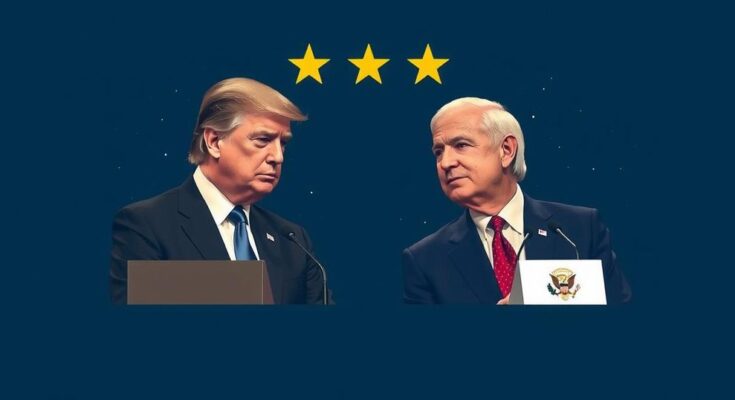In the lead-up to the election, President Biden met with President Christodoulides of Cyprus, discussing global conflicts while underlying uncertainties about America’s future leadership role emerged. Concerns regarding potential American withdrawal from international engagement were voiced, reflecting broader global anxieties about stability in a volatile geopolitical environment.
As the United States approaches its forthcoming election, President Joseph R. Biden Jr. received President Nikos Christodoulides of Cyprus in the Oval Office for their final pre-election meeting, which focused extensively on the conflicts in the Middle East and Europe. The discussions not only addressed cooperative efforts against geopolitical aggressions but also underscored significant underlying concerns regarding America’s future role in global leadership following the election. The meeting, though devoid of a direct reference to the rising anxieties surrounding American leadership, was significantly influenced by the uncertainty of the electoral outcome. Cyprus, a relatively small island nation in the eastern Mediterranean, holds strategic importance, particularly in the context of U.S. relations with both Europe and the Middle East. Given its historical ties with Russia and its current status as a critical point for humanitarian efforts, Cyprus’s role may become increasingly pivotal regardless of the election’s outcome. In the aftermath of their discussions, President Christodoulides articulated widespread apprehensions echoed throughout Europe and beyond, primarily regarding potential American withdrawal from the international stage. He expressed, “There is always a fear that you could have an America stepping back, a kind of seclusion and isolation… That’s the main concern because the region is in turmoil right now. It’s extremely dangerous.” This sentiment reflects deep-rooted anxieties over the shifting landscape of global power dynamics and the implications of American isolationism, should the election yield unexpected results. This meeting thus encapsulates the current geopolitical landscape, highlighting the urgent need for stable and active American engagement in international affairs.
As international tensions escalate, nations across the globe are closely monitoring the political situation in the United States. The pivotal elections, often characterized by uncertainty and shifts in policy direction, have significant implications for America’s role in world affairs. Countries such as Cyprus, which possess unique geopolitical positions, become focal points in discussions concerning U.S. foreign policy and its implications for regional stability and global alliances.
The meeting between President Biden and President Christodoulides underscores a critical moment in international relations as concerns mount over the potential for diminished American leadership following the impending election. The dialogue highlights the importance of continued U.S. engagement in world affairs, particularly in a tumultuous Middle Eastern context. The anxieties expressed by global leaders, like that of President Christodoulides, underscore the broader implications of U.S. electoral outcomes on international security and alliances.
Original Source: www.nytimes.com




